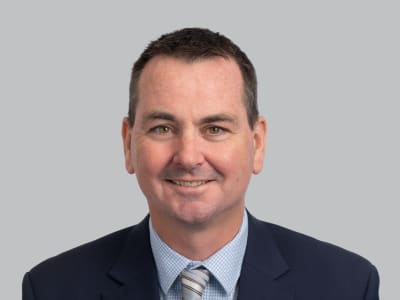The aged care sector in Australia is preparing for major changes in the coming years, as important reforms are planned to be implemented.
A report published by the Aged Care Taskforce in March 2024 will guide the way the industry operates. RSM Australia is following the proposals closely which will lead to more innovation in the sector, providing quality care to older people.
In June 2023 the Government established an “Aged Care Taskforce” to review the aged care system and build on recommendations by the Royal Commission into Aged Care Quality and Safety.
The Taskforce has 16 members who have wide ranging experience and expertise in health and aged care, banking and finance, economics and public policy including representatives of providers, current and future aged care participants, younger people, and diverse groups.
The Taskforce met monthly from June to December 2023 and gathered information from sources such as various surveys, forums, targeted roundtables, and written submissions.
Overview of Report:
In summary, the Taskforce emphasised within the report the necessity for an "aged care system characterised by sustainability, equity, and enhanced innovation within the sector". Their assessment was informed by the Australian Government’s Intergenerational Report 2023, projecting a tripling of the population aged over 80 to more than 3.5 million in the next four decades.
The Taskforce identified two primary consequences:
- The tax burden for financing aged care services will escalate as the proportion of the population over 80 diminishes.
- Shortages in the aged care workforce will exacerbate, posing significant and ongoing obstacles to delivering high-quality care.
Considering these consequences, the Taskforce suggested recommendations that aligned with three broad themes:
- Facilitating aging in place for older individuals
- Ensuring fair and sustainable funding
- Enhancing quality, fostering innovation, and promoting transparency
Ensuring Fair and Sustainable Funding
With the increasing longevity of individuals and the consequent growth in the elderly demographic, the aged care sector will require augmented resources. Emphasising the necessity for more stable and dependable funding in residential aged care, the Taskforce underscored its significance.
According to the Taskforce's findings, approximately 75% of the overall funding for residential aged care originates from government sources. This imbalance is deemed unequitable, especially given a wealthier and growing elderly population. To address this, the Taskforce proposed that individuals with greater financial means should contribute higher proportions of their own expenses.
Interestingly, the Taskforce discovered that older individuals are receptive to increased co-contributions if they result in enhanced quality of care. Consequently, providing greater transparency regarding how funds are utilised to bolster the quality of aged care services could lead to greater willingness among older individuals to elevate their contributions, thus ensuring more robust funding for aged care providers.
Nevertheless, the Taskforce acknowledged that the government will remain the primary financial contributor to the sector, focusing on covering care costs and providing services for individuals with lower incomes, as well as catering to underserved markets.
Enhancing quality, fostering innovation, and promoting transparency
Quality
The Taskforce also emphasised the necessity of supporting elevated standards of care, stressing that providers must give paramount importance to resident well-being, safety, and dignity.
As per the Taskforce's observations, following the Royal Commission's scrutiny of substandard care levels, there has been an enhancement in quality coupled with an augmentation in funding.
Innovation and Technology
The Taskforce stressed the importance of innovation in the sector, encouraging providers to adopt new technologies that could improve efficiency, communication, and overall resident experiences.
However, current financial difficulties are hampering innovation in the aged care field. The Taskforce observed that when financial stability issues are resolved, providers will be able to implement innovative improvements, such as IT-based solutions, better physical environment design approaches, and more effective worker-centered solutions such as optimal rostering systems.
Workforce Development
As the population aged 65 and above expands at a rate surpassing that of the working-age demographic, there is a risk of strain on the aged care workforce. The Taskforce highlighted the necessity for substantial efforts to address "workforce attraction and retention challenges". Moreover, the Taskforce highlighted that these challenges stem from inadequate sustainable funding.
Transparency and Accountability
The Taskforce recognised that enhanced transparency and accountability among providers would significantly enhance older individuals' capacity for informed decision-making and planning.
The recommendations also suggest that providers should transparently share extensive information about how they allocate funds and the quality criteria of their services. Moreover, it is important to spread awareness about aged care costs, financial products that support retirement spending.
FOR MORE INFORMATION
You can read the full report on the Department of Health’s website.
Please reach out to Ray Scott (National Director – Aged Care) if you would like to discuss your specific circumstances.





